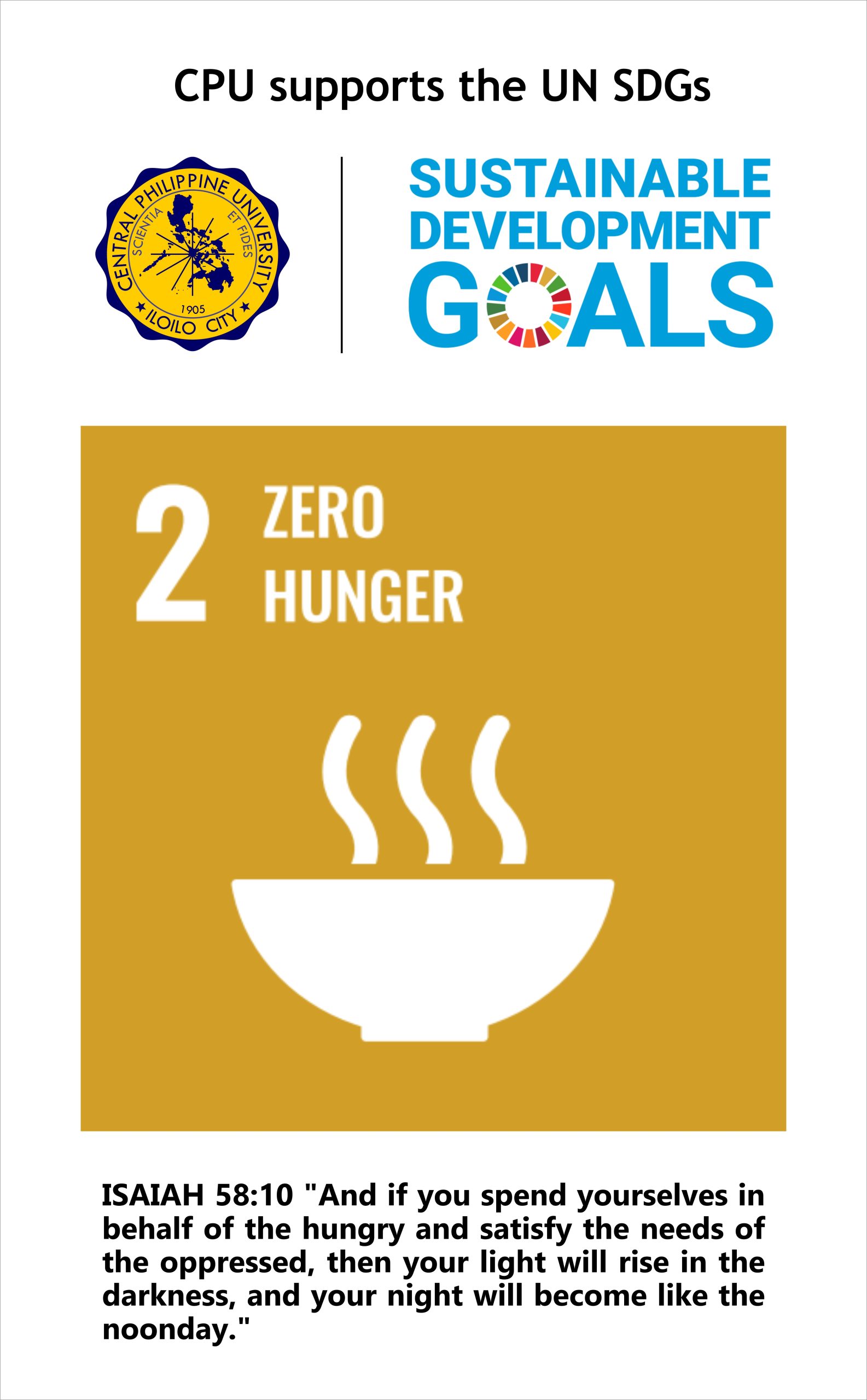
“Zero Hunger” – Seeds of Faith – June 17, 2024
Today, we continue our 17-part sermon series focusing on the Sustainable Development Goals (SDGs) of the United Nations, proudly supported by Central Philippine University. These goals are a call to action for us all, aligning with our Christian values to create a just and sustainable world. Now, we focus on the second goal: Zero Hunger. Our guiding scripture is Isaiah 58:10, which says, “And if you spend yourselves in behalf of the hungry and satisfy the needs of the oppressed, then your light will rise in the darkness, and your night will become like the noonday.”
First, compassion for the hungry is a reflection of God’s love.
Isaiah 58:10 calls us to spend ourselves on behalf of the hungry and to satisfy the needs of the oppressed. This verse highlights the importance of selfless giving and compassion. Feeding the hungry is more than a charitable act; it is a reflection of God’s love and compassion for humanity. Jesus demonstrated this through the feeding of the 5,000, showing us that caring for physical needs is integral to His ministry.
As followers of Christ, we are called to continue His work. When we provide food for those in need, we embody the love and grace of God. Our actions become a testimony of His care for all His children. By working towards zero hunger, we are fulfilling a core aspect of our Christian duty, showing that faith without works is indeed dead (James 2:26).
Second, we should be part of the collective responsibility to end hunger.
Addressing hunger requires more than individual efforts; it necessitates a collective response from the community, the church, and broader society. The SDG of Zero Hunger challenges us to look beyond personal acts of charity and to engage in systemic solutions that address the root causes of hunger. This includes supporting agricultural development, advocating for fair distribution of resources, and promoting sustainable food systems.
Central Philippine University plays a vital role in this collective effort by fostering education, research, and community outreach programs aimed at food security. As a church, we can support these initiatives by volunteering, donating, and raising awareness. Together, we can create sustainable solutions that ensure everyone has access to nutritious food.
Third, God has given us the promise of light and transformation.
The latter part of Isaiah 58:10 offers a beautiful promise: “then your light will rise in the darkness, and your night will become like the noonday.” This promise signifies that when we commit ourselves to the cause of the hungry and oppressed, we will experience God’s transformative power in our lives and communities. Our acts of compassion and justice bring light into the darkest places, offering hope and renewal.
God assures us that our efforts to feed the hungry will not only bless those we help but also bring blessings into our own lives. This transformation is both spiritual and practical, as we see communities flourish and individuals empowered. By working towards zero hunger, we are participating in God’s redemptive plan, bringing light and life where there was once despair.
As we reflect on Isaiah 58:10 and the goal of Zero Hunger, let us renew our commitment to be agents of God’s love and justice.
May the Lord bless our efforts and guide us in this noble mission!
Sincerely,
Rev. Francis Neil G. Jalando-on
Director
Office of Communications
Central Philippine University
